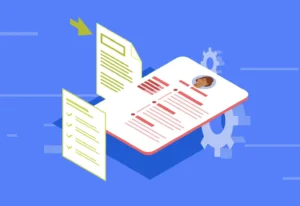In today’s fast-changing world, the way we lead needs to change too. It’s no longer enough to just manage tasks or give orders. Modern leaders need special skills to inspire their teams, embrace new ideas, and keep their organizations moving forward. This is especially true when it comes to innovation – that spark that creates new products, services, and ways of doing things. So, what does it take to be a leader who truly drives innovation in this exciting, yet challenging, era?
Beyond the Old Playbook: What Modern Leadership Looks Like
The traditional idea of a leader as a top-down decision-maker is quickly becoming a thing of the past. Today’s most effective leaders are more like coaches, mentors, and visionaries. They understand that innovation doesn’t just come from one person; it comes from empowering everyone in the team. This means:
- Being Open to New Ideas: Actively listening to suggestions from all levels, even if they seem unconventional.
- Encouraging Experimentation: Creating a safe space where trying new things, and even failing sometimes, is seen as a learning opportunity.
- Fostering Collaboration: Breaking down silos and encouraging different teams to work together to solve problems.
- Embracing Change: Seeing new technologies and market shifts not as threats, but as chances to grow and improve.
These qualities are vital for any leader who wants to keep their team at the cutting edge. Here, a well-designed leadership training program plays an important role in developing these cutting edge skills.
Key Skills for Driving Innovation
Modern leaders need a blend of soft skills and strategic thinking to truly drive innovation. Here are some of the most important ones:
- Visionary Thinking: Leaders must be able to see the big picture and articulate a compelling future. They need to inspire their teams with a clear direction, showing them how their work contributes to something bigger. This vision acts as a compass for innovation.
- Adaptability and Agility: The world changes quickly, and leaders must be able to adapt their strategies and plans on the fly. Being agile means being able to pivot when necessary, learning from new information, and not being afraid to change course. This flexibility is crucial for navigating uncertain times.
- Empathy and Emotional Intelligence: Understanding your team members’ needs, motivations, and challenges is key. Leaders with high emotional intelligence can build stronger, more trusting relationships, which in turn fosters an environment where people feel safe to share ideas and take risks. This human touch is irreplaceable.
- Digital Fluency: While leaders don’t need to be tech experts, they do need to understand how technology, like AI and automation, can impact their business and create new opportunities. This awareness helps them make informed decisions about investing in new tools and guiding their teams through digital transformations.
- Coaching and Mentoring: Instead of just telling people what to do, modern leaders guide and support their teams. They help individuals grow their skills, overcome obstacles, and reach their full potential. This approach builds strong, self-sufficient teams capable of continuous innovation.
The Role of Leadership Training in Cultivating These Skills
These skills don’t just appear overnight. They are developed through experience, reflection, and dedicated learning. Many organizations are investing in leadership training programs to help their executives and managers cultivate these modern competencies. These programs often include workshops, simulations, and real-world projects designed to sharpen strategic thinking, improve communication, and enhance emotional intelligence.
Furthermore, specialized leadership courses offer structured pathways for leaders to deepen their understanding of innovation methodologies, change management, and how to build a culture that thrives on new ideas. These courses provide practical tools and frameworks that leaders can immediately apply in their roles, making a tangible difference in their organizations.
Innovation Starts at the Top
Ultimately, innovation is not just about technology; it’s about people and culture. And that culture is set by the leaders. When leaders embody these modern skills, like vision, adaptability, empathy, digital fluency, and a coaching mindset, they create an environment where innovation isn’t just encouraged, it’s a natural outcome. They empower their teams to be creative, take initiative, and solve problems in new and exciting ways.
Conclusion
The future of business belongs to those who can innovate constantly. For leaders, this means moving beyond old ways and embracing a new set of skills that prioritize people, adaptability, and forward-thinking vision. By investing in themselves through leadership courses, today’s leaders can equip themselves to not only navigate the complexities of the modern world but to actively shape it, driving their organizations to new heights of success and groundbreaking innovation.
Read more: Avoid Grammar Mistakes in Your CV and Land Your Dream Job
Trawling vs. Trolling: Differences, Techniques & Impact
How Indian CA Firms Support US-based CPAs with Offshore Bookkeeping











